About
Our Story
The first Presbyterian congregation near what is now Tuscumbia was located near Cane Creek and was likely begun through the efforts of Rev. Thomas C. Stuart. “Father Stuart” was a missionary to the Chickasaw Nation who served near what is now Pontotoc, Mississippi. Following the establishment of a settler community at Tuscumbia, church planter Gideon Blackburn came down from Kentucky to oversee the establishment of a “particular church” that held its first worship service in 1824 at the Challen House on Spring Hill. Rev. Blackburn was a leading figure of frontier Presbyterianism in the Second Great Awakening. Blackburn not only organized the church, but he trained the man who would become its first pastor, Dr. Alexander Augustus Campbell. The church was united behind the full authority of the Bible as God’s Word and the belief that the Westminster Confession of Faith and Catechisms are an accurate statement of Biblical doctrine. We continue in that great heritage of belief today. We are a member of the Providence Presbytery of the Presbyterian Church in America.
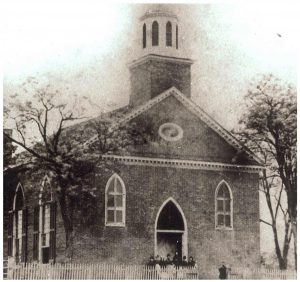
The church building was erected in 1827 and stands today as the oldest Presbyterian sanctuary in continuous use in Alabama. The church has grown and stayed faithful to the gospel throughout two centuries. The church has been the grateful recipient of God’s work of grace working in godly leaders. There has been a long line of 27 faithful and effective pastors who have served First Presbyterian Tuscumbia over the years.
Several significant families in the life of the Shoals and northern Alabama have been members and officers in First Presbyterian Church. Likely the most famous to those outside of Alabama is the Keller family. Arthur Keller presented his daughter Helen Keller for baptism during the ministry of James G. Lane in 1880. The Keller family has continued to have officers and leaders in the church down through the years.
There is much more that can be said about the ministry of the church over the years. The church is known for its commitment to historic Reformed worship, its wonderful Women in the Church ministry, its missionary commitment, its fine youth programs, and its vital role in the life of the community. The church’s worship has continued in the historic stream of the Presbyterian and Reformed tradition while also emphasizing joy and enthusiasm. First Presbyterian Church of Tuscumbia continues to be a lighthouse of grace and truth, preaching the same gospel for two hundred years to the glory of God and the joy of its people. For an extensive look at the history of the church, please visit the Church History page.
(Last updated 2025)
History of Pastors
- Organizing Pastor: Dr. Gideon Blackburn 1824
- Alexander A. Campbell 1824-27
- George W. Ashbridge 1827-30
- T.M. Arnell 1830-31
- James Weatherby 1831-37
- James O. Steadman 1837-45
- N.A Penland 1848-50
- C.F. Williams 1852-55
- Abram L. Kline 1856-60
- B.N. Sawtelle 1861-72
- H.E. Brown 1872-73
- Horace P. Smith 1873-77
- James G. Lane 1878-95
- R.J. Beatty 1896-99
- J.D. Wallace 1899-1903
- Wilson F. Trump 1903-26
- William Crowe IV 1926-29
- William V. Gardner 1930-33
- Charles F. McRae 1934-42
- Adrian E. DeYoung 1942-50
- Bruce H. Wideman 1950-55
- James H. Patterson 1955-67
- Ronald L. Siegenthaler 1969-85
- George W. Mitchell 1985-87
- Richard W. Markert 1988-95
- Jerry R. Robbins 1996-2002
- Randy E. Thompson 2002-2024
- Jeffery L. Hamm 2024-present
Staff and Leadership
Staff

Dr. Jeff Hamm
Senior Pastor
Dr. Hamm was born in Germany and adopted by an American couple stationed there with the U.S. Army. He has lived in Europe and Asia—in addition to multiple states in America—plus toured over a dozen foreign countries.
Dr. Hamm graduated from Auburn University with a B.S. in Mathematics (1990). Afterward, he served in the U.S. Air Force for six years but separated at the rank of captain in order to pursue the call to ministry. Jeff attended Reformed Theological Seminary in Jackson, Mississippi where he received the Master of Divinity degree for ordination. He earned the Ph.D. in Systematic Theology at King’s College, the University of Aberdeen, Scotland (est. 1495). His dissertation—in the field of presuppositional apologetics—was published as a book entitled Turning the Tables on Apologetics: Helmut Thielicke’s Reformation of Christian Conversation (Pickwick Publications, 2018).
Jeff has enjoyed the pleasure of serving as the pastor of churches from rural Mississippi to Buckhead, Atlanta. He gives glory and thanks to God for Kelly, a true companion in his pilgrimage on this earth; and for their four children, Joshua, Hunter, Luke and Betsy, whose lives and love are a shelter in the storm and stress of his very existence.
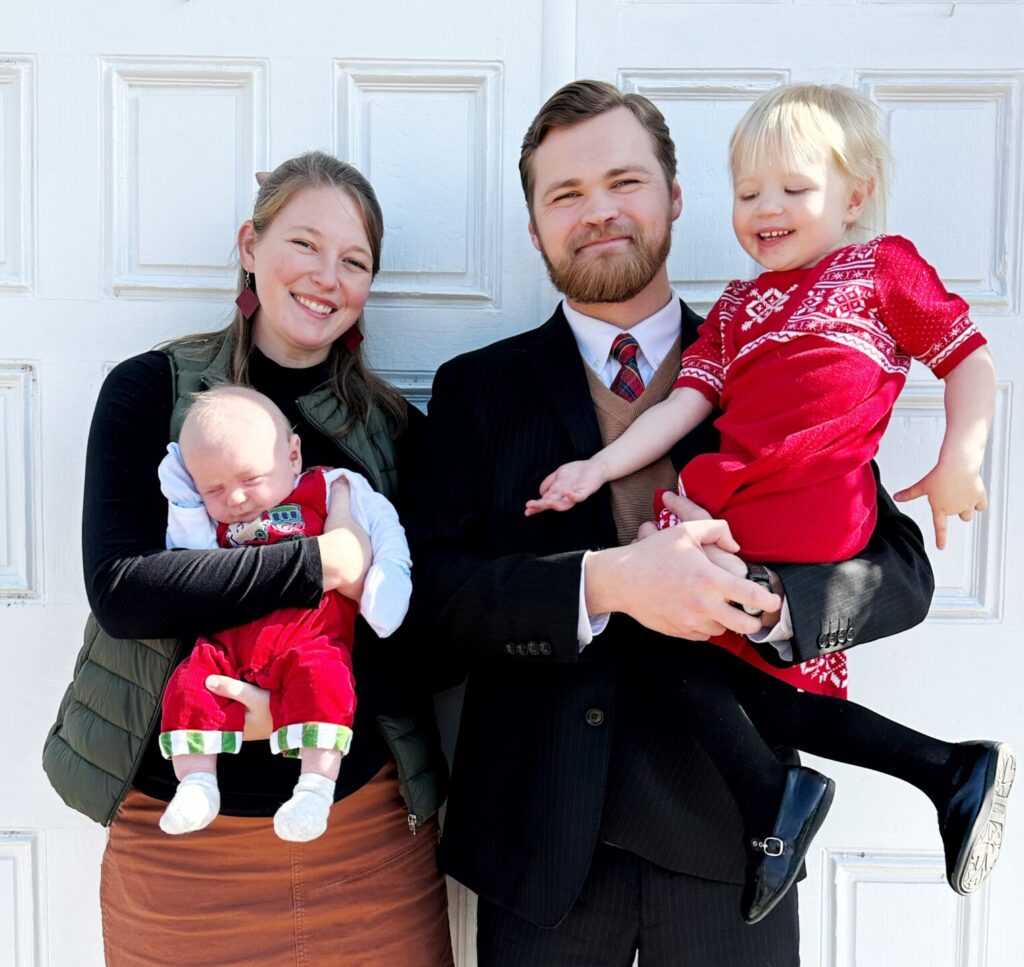
Rev. Drew Tunnell
Assistant Pastor
Rev. Drew Tunnell is from Mt. Olive, AL and was reared in a Christian home. He is a graduate of the University of Alabama (’19) and met his wife, Emma, while in college.
They married in 2020 and now have two children, Ivy and Jim. Rev. Tunnell has been on staff at First Presbyterian Tuscumbia since 2021 and was ordained as a minister of the gospel in February 2025.
He has a Master of Arts in Biblical and Theological Studies from Knox Theological Seminary (’24).
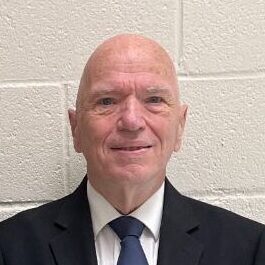
Dr. Gary Nannt
Pastoral Assistant
Dr. Nantt is a retired PCA missionary having spent 35 years serving the Lord in South Korea and Mexico. He has been working for First Presbyterian Tuscumbia for three years and with First Presbyterian Russellville one year.

Dinie Stone
Director of Music
Dinie has been a member and serving at First Presbyterian for her entire life. She started the choir at age 14 and has been singing and accompanying since then as well. Her daughter Adina serves with her.
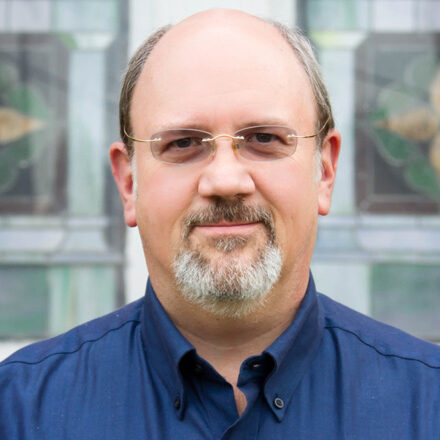
Brian Beck
Organist
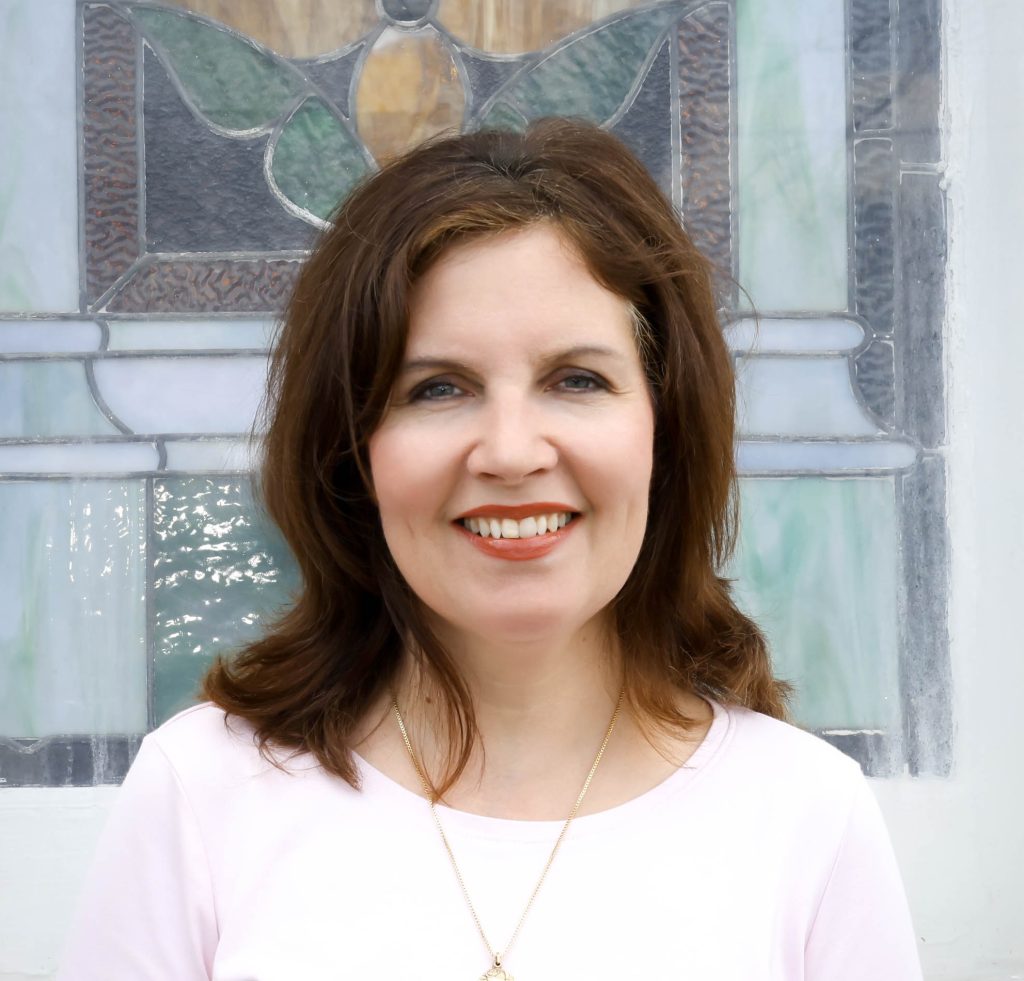
Jennifer Richardson
Bookkeeper
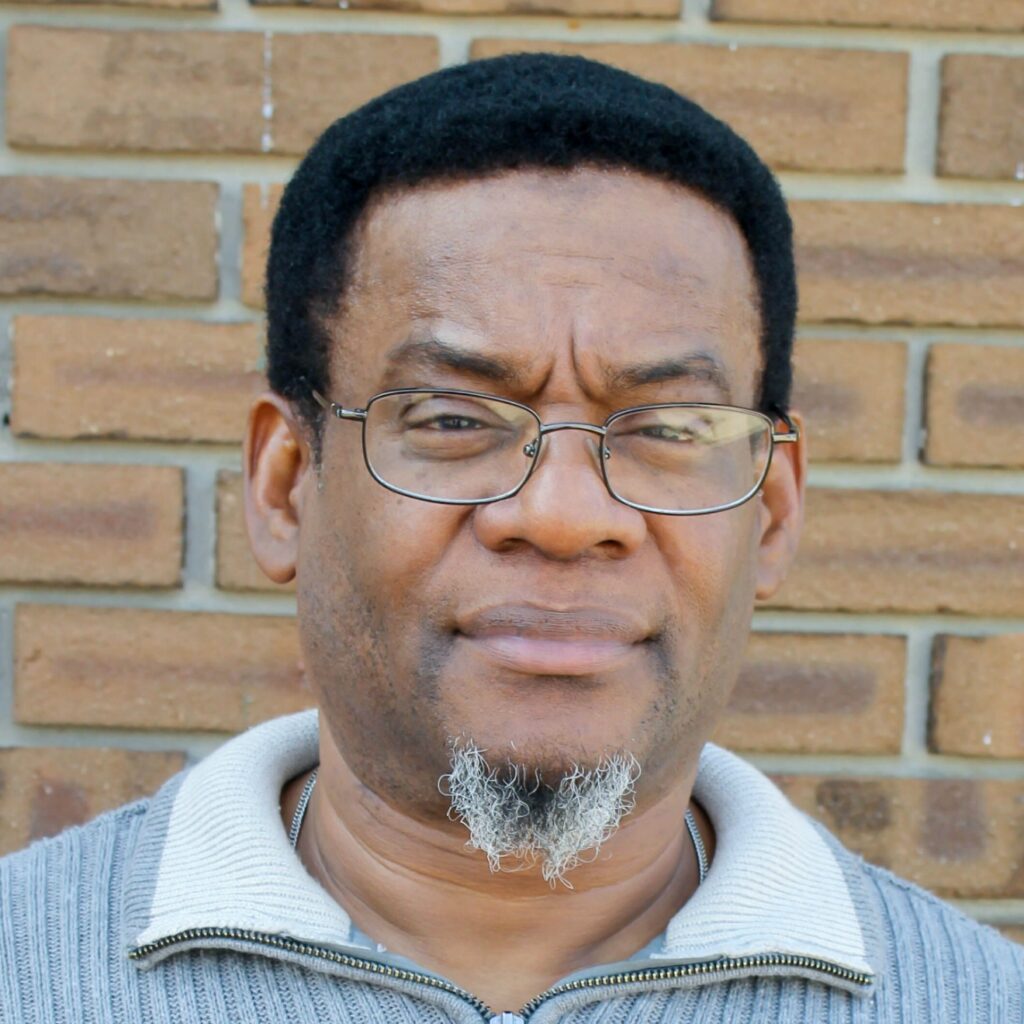
Thomas Jones
Sexton

Cayla Spencer
Secretary
Church Officers
Session
- Class of 2029: Jimmy Hughston, Jameson Hughston
- Class of 2027: Al Willis, Lee Hudson, Hal Hughston, Jr.
- Class of 2025: Tommy Crosslin, Wes Marchman (Stated Clerk), John Waggoner, Bret Waldrep
- Emeritus Elders: Ron Hudson, Bill Lacey, M.B. Myers
Diaconate
- Class of 2030: Taylor Brooker, Sean Jacobson, Jacob Johnson
- Class of 2028: Adam Isbell, Jason Tucker, Russ Tate (Chairman)
- Class of 2026: Beau Cooper, Gordon Ruggles
- Emeritus Deacons: Wyatt Simpson
Women in the Church (WIC) Leadership
- Adina Stone, President
- Stephanie Isbell, Vice President
- Barbara Collins, Secretary
- Simone Singleton, Treasurer
- Reba Griffith, Missions
- Marie Woodall, Christian Growth
- Mary Brooker, Nursery Chairman
- Sarah Cooper and Rebecca Hovater, Historians
- Gail Hughston, Circle I Chairm.
- Susanne Wadsworth, Circle II Chairm.
- Jan Hudson, Circle III Chairm.
New Here? Frequently Asked Questions
When people come to our church for the first time, they usually notice that the worship service is a bit different than other churches. For many from a low-church evangelical background, it is more formal than what they are used to, with creeds and responsive readings that are foreign to them. Some people aren’t used to reading responses, like the confession of sin, the Apostle’s Creed, or the Lord’s Prayer. Another difference is our music. The hymns and tunes are sometimes unfamiliar; some seem to be very old, and some seem to be very new. For others from a high-church background, the worship service is less ornate or structured. For example, many will notice the simplicity with our worship aesthetics or the bulletin. So why do Presbyterians worship the way they do?
FAQs
When are your worship services on Sunday?
We meet at 9:30 a.m. and 6:00 pm. We have Sunday School for all ages at 10:45 to 11:30 a.m.
Why do you have two worship services?
We believe the most important ingredient to Christian growth is corporate (group) worship and preaching. Correct worship is what God seeks (John 4:24) and preaching is where the voice and truth of Christ are heard most clearly (Romans 10:14). Of all the things the church does, this is the most important.
What do we wear?
You may dress any way you like. You will see some in suits and dresses and some in jeans and polos. However, we do not shy away from saying our worship is “formal” worship. That merely means that it is organized, orderly, and has a goal of true reverence. Since reverence has an element of respect in it, many of our folks will try to “clean up” nicely for the service. But that is different for each person. Sunday evening is always more relaxed than the morning. The service is slightly simpler, and ties and dresses are relatively rare.
What should we expect at your worship service?
Our worship service will be orderly, participatory, and reverent. There will be a bulletin that has some written unified responses to say. We sing psalms, hymns, and spiritual songs either out of the Trinity Hymnal or from printed songs in the bulletin. We use mostly a piano and/or organ to accompany the singing, though on occasions we have also used other instrumentation. We use the Bible throughout the service and the preaching will always be an exposition of a portion of Scripture. We seek the dual Biblical characteristics of reverence and joy to be present in every service.
How is evening worship different than morning?
As was stated earlier, evening worship is less formal though still reverent and orderly. The preaching is still Biblical, but emphasizes personal Christian growth and is often more topical than the morning service. The morning service nearly always features consecutive expositions of books of the Bible. We have been working at introducing different types of music into our evening service, whereas the morning service is more historic (traditional).
What about children during worship services?
We have a well staffed nursery for children aged 5 and under. However we emphasize that worship is for the whole family and we encourage families to train their children to worship with the whole church as early as they can in life. It may take a while to train a child to sit quietly, sing, and listen in a group setting. But there are few things more valuable for a child to learn. There is no separate children’s church or children’s sermons. You can learn more about Nursery and Children’s ministries here.
How is your Sunday School organized?
We have Sunday School classrooms from the age of 2 and up. Adult classes are “affinity based” small groups which meet throughout the church building. There is a great deal of overlap and all are welcome in whatever class they choose. You can learn more about our Sunday School classes here.
Are there any other small group meetings?
We gather in various groups to pray and share on Wednesday nights, the Women in the Church sponsor several small group meetings, and there are often informal groups that spring up throughout the year. Check the office for specific times and places. Learn more about our Mid-Week gatherings here.
What programs are available for children and youth?
We have a full youth program. In addition to Sunday School there are classes for ages 5 and up on Wednesday night while the adults gather for prayer. The teenagers have their own meeting house on campus where they meet Wednesday and often on Sunday evening after the worship service. We have an annual Vacation Bible School for our children and the teenagers participate fully in our denominational summer conference ministry, The Edge for junior highs, and Reformed Youth Ministry (RYM) for high schoolers. There are also various other activities throughout the year which are led by our Assistant Pastor.
What does it mean that you call your church “Presbyterian?”
“Presbyterian” is a word to describe churches that are theological descendants of what became known in history as the “Reformed Faith.” Reformed theology and practice stems from the rediscovery of certain basic truths in the Protestant Reformation. One branch of the Reformation identified itself as “reformed” meaning everything in the church should be reformed by Scripture. The word “Presbyterian” actually refers to the distinctive view rediscovered in the Reformation that the church should be ruled by a group of elders (“presbyteros” in Greek).
Is there just one “kind” of Presbyterian denomination in the Shoals?
Actually we have counted six different Presbyterian denominations in our general area! Our local church is a member of the Presbyterian Church in America which was founded in 1973 from a group of churches who left another Presbyterian denomination because of what it perceived as a liberalizing influence. Today it stands as the second largest Presbyterian body in the United States. The PCA holds to the Confession of Faith that the American Presbyterian churches adopted in 1788 and has held ever since. That confession is called the Westminster Confession of Faith, and the Larger and Shorter Catechisms. The PCA believes in world-wide evangelization and has a greater number of missionaries than any other Presbyterian body. The PCA holds firmly to the inerrancy and infallibility of the Scriptures.
How are Presbyterians different today from other denominations or churches?
In our day and age we find the Presbyterian and/or Reformed understanding of the Bible differs from others in mostly three areas.
First, we have a strong emphasis on the sovereignty and transcendence of God. We believe that God is almighty and “magnificently other,” deserving majestic worship and humble obedience. In the doctrine of salvation we believe the Bible emphasizes the sovereignty of God. This focuses on the free invincible grace of God that saves sinners through their expression of faith. Often this is called “election” or “predestination” in the Bible. Our practice of evangelism in preaching and sharing the gospel is enhanced by knowing that the Holy Spirit is going before us, drawing men, women, boys, and girls into saving faith. God truly saves the lost, not just makes it possible for them to save themselves.
Secondly, the Presbyterian and Reformed faith understands the Biblical sacraments of baptism and the Lord’s Supper in a slightly different way than most churches. Our views are connected to our understanding of the covenant in Scripture. We baptize by pouring water, believing the mode of baptism follows the baptism of the Holy Spirit. We baptize all believers and their infant children, believing the Bible teaches that the family is one of the main methods of evangelism. The sign of belief is placed on whole households (e.g. Acts 16:15, 25f) as a declaration of God’s special love for the family and our anticipation of the children’s hoped for salvation. We include them in the covenant that we make with God. Presbyterians have always had a strong focus on the rearing of children in a Christian environment. This is our obligation in the covenant of grace. We also believe the Holy Spirit is vitally present in the Lord’s Supper, and works through it in a similar way to how God uses the Scripture to bring us grace and strength. We do not believe the supper contains the physical body or blood of Christ in any way, nor do we believe the supper is merely a reminder of Christ’s life and death. The Lord’s Supper is the sign of communion in the New Covenant (1 Corinthians 11:25).
Thirdly, Presbyterians believe that church government consists a series of courts which are made up of elders or bishops. There are several elders in each church, each of whom elected into their role by the congregation. The pastor is just one of the members of the board of elders. There is a regional board of appeal and fellowship called the presbytery, which is made up of representative elders from congregations in a specific geographic location. There is an annual meeting called General Assembly which functions as a “supreme court” for national issues and challenges. The church functions as a republic, not a democracy or a dictatorship. Elders are elected and lead, much like our representatives in our civil government.
Are these the only or most important distinctive beliefs of the Reformed Faith?
Not at all. The Presbyterian/Reformed faith has several other major emphases. The preaching of the inerrent and infallible Scripture is a mark of the Reformed Faith. Proper church discipline administered by loving and concerned elders is a distinctive. Our understanding of the Old Testament’s relationship to the New, and the use of the moral law of the Old Testament is a historic distinctive. The difference in our understanding of law and grace in Christian growth is often freeing to the soul. Our approach to outreach is not only a belief in evangelism from the pulpit and by members during the week, but a desire to take the Biblical mandates and apply them to our whole culture, “taking every thought captive” to the Word of God. Often Presbyterians will be in the forefront of reform in politics, civic life, and education, to name a few. This is a fully orbed approach to extending the Kingdom of God in our midst. More information about all of these are available from the church.
Goals for the Family
Make it your personal goal to “grow in the grace and knowledge of our Lord and Savior Jesus Christ” (2 Peter 3:18)
Growing in Christ should be a chief family goal. Knowing Christ better, making Him known, and growing in Him should always take highest priority in a Christian family.
In fact, it would be a great help to any family to lay out their priorities, in order, in the context of the goal of “growing and glorifying.” Social life, school activities, recreation, Church, community service, clubs, rest, the Sabbath day, work, and family time all should be rated as to which is more important for your family. Most of us just go with what seems best at the time. But it’s so helpful to have talked out the potential conflicts before they occur.
- If sports and spiritual growth opportunities conflict, which is the priority?
- If school work and social calendars conflict, which is the priority?
- If a community service committee meeting and a party conflict, which is the priority?
Though many of us instinctively head toward the proper choice in these easier examples, written priorities might guide us through the harder decisions every family has to make.
Our Approach to Worship
Growing in Grace
Worship is a key element to growth, and public worship is the quintessential worship for the Christian. We meet with God in a corporate dialogue, encouraged and aided by the brothers and sisters near us. In public worship we speak to God as a people, and He calls us to belief and action. Public worship combines all the different elements of prayer, praise, and encouragement from the Bible. Worship also makes us grow by giving us a greater appreciation of God’s multifaceted grace. It often follows the outline of the gospel itself, as well as presenting the gospel to believer and unbeliever alike for their help and growth. Worship brings us into the environment of heaven, whereby we can be strengthened by the presence of God and His people.
Worship also deepens our knowledge of Him in the Scripture, especially as it is preached. The sermon is an exposition of the Scripture, not merely the opinions of the preacher. The sermon explains, illustrates, and applies a text or section of Scripture. The sermon is to be faithful to the teaching of God’s Word, and plain enough for all to understand. Scripture is clear that preaching is to be the staple activity of the pastor and the main means by which God converts, grows, and matures His people. Several Greek words in the original texts of the Scripture are translated preach in our English Bibles. One is more powerful than the others. It refers to the solemn task only the pastor is commissioned to do. This Greek word, kerusso, often referred in ancient culture to one man speaking publicly to many on behalf of a king. This man is charged with calling out the message exactly as he received it, with all the force with which it was given him. If carefully and accurately delivered, the herald carries all the authority of the king himself. God has called the pastor to preach like this with all His heart (2 Timothy 4:2). The gravity of preaching is best expressed by the last few words of Romans 10:14. A literal translation of the verse leaves out the of in the first part of the verse and thus implies that the voice we hear in preaching is the voice of Christ! A faithful translation would be, “But how are they to call on him in whom they have not believed? And how are they to believe in him [of] whom they have never heard? And how are they to hear Him [implied] without someone preaching [the herald]?” It is hearing the voice of Christ through and in the sermon that feeds our soul and helps us grow. Though this passage does not intend to equate the preacher’s sermon with direct revelation from God, these are the strongest words in all of Scripture concerning the means Christ uses to call to mankind.
Worship and preaching bring together so many elements of Christian growth that the leaders of First Presbyterian Church have decided that worship with preaching is our first priority. Consequently we worship in the morning and the evening at First Presbyterian. The morning worship is more formal than the evening, and the music is designed more to lift our heads to the majesty and grandeur of God. In the evening the music selection is broader, using a greater variety of tunes and formats. Both services feature preaching, but the style is frequently different. The morning preaching is often more focused on exhorting the Christian to growth and the unbeliever to commitment. The evening sermon is frequently intended more to teach the Christian in his daily walk and to build him up in the knowledge of the Word. Hearing both sermons allows the believer to gain the benefits of preaching and teaching. Biblical worship that features Biblical preaching is the first and most important part of Biblical discipleship! Noted author and theologian Sinclair Ferguson said in a recent sermon, “I don’t know how anyone can expect to grow listening to only one sermon a week!” We can confidently say that you will not grow unless you are regularly attending worship in a church that preaches Scripture as God’s true word.
